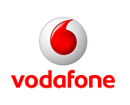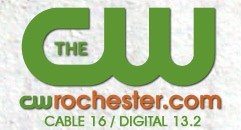 AT&T has discovered marketing gold. What do you do when you run one of America’s worst-rated mobile networks — the one that drops your calls, doesn’t provide uniform reception and is often woefully overloaded — and don’t want to spend what it takes to upgrade? How about developing a “Home Cell Tower” device that helps solve AT&T’s problems, but adds to yours by charging you $150 for the privilege of owning one.
AT&T has discovered marketing gold. What do you do when you run one of America’s worst-rated mobile networks — the one that drops your calls, doesn’t provide uniform reception and is often woefully overloaded — and don’t want to spend what it takes to upgrade? How about developing a “Home Cell Tower” device that helps solve AT&T’s problems, but adds to yours by charging you $150 for the privilege of owning one.
AT&T’s 3G MicroCell shouldn’t need to exist. If AT&T had reliable coverage, nobody would need to own a device that helps their bottom line far more than yours.
The MicroCell is sold to customers who are stuck walking their AT&T mobile phone over to the nearest window in order to get a signal from AT&T. The unit, manufactured by Cisco, plugs into your home broadband connection and effectively creates a tiny “home cell tower.” Suddenly, you now have five bars of reception indoors and can make and receive calls and reliably use the data features of your smartphone. AT&T effectively moves your service off their own congested, weak-signal mobile network, and routes everything over your Internet connection instead.
It’s a win-win for AT&T. They get to charge you a substantial markup for a device that costs far less than $150 to manufacture and reduces the urgency to commit to needed upgrades to solve congestion problems.
But AT&T’s marketing department has also figured out a way to earn an even bigger bonus along the way.
Customers who do not choose a special added-cost AT&T MicroCell add-on plan (a ludicrous $19.99 per month plus a $1.25 monthly bill-padding-“regulatory recovery fee”) will be shocked to discover AT&T deducts minutes from your calling allowance even when using the MicroCell to provide you with service. It takes a special kind of nerve to charge customers for making and receiving calls that don’t even use the company’s mobile network. It’s like AT&T setting up a kiosk in front of the nearest Verizon payphone and charging you $1 for the privilege of paying Verizon 25 cents to make a call. The $20 a month add-on plan doesn’t even cover data usage, which means AT&T charges you for accessing data and text messages sent and received over your own home broadband connection.
The Associated Press reviewed AT&T’s 3G MicroCell and seemed unimpressed.
Despite marketing claims it will deliver more bars in more places within 5,000 square feet, the AP found the MicroCell only managed a less impressive 40 feet. AT&T admits concrete or brick walls can also reduce coverage. For all practical purposes, don’t expect the device to provide much help out in the yard.
AT&T also claims MicroCell users can initiate calls from the MicroCell and have them “seamlessly” transferred to AT&T’s mobile network when they walk out of range. The AP found more times than not, AT&T simply dropped the call, forcing the customer to start a new call. Even worse, customers initiating a call on AT&T’s mobile network will find the MicroCell can’t take over when they arrive home, making the primary reason for getting the device irrelevant the moment you walk in the door and risk dropping the call.
The only good news is that introductory promotions can knock down the upfront price. Customers committing themselves to the $20 MicroCell add-on calling plan qualify for a $100 rebate when purchasing the MicroCell. If you also sign up for new AT&T DSL or U-verse service when buying the MicroCell, you can get an additional $50 rebate, effectively making the MicroCell free to own. AT&T broadband customers will also get $10 off the MicroCell add-on calling plan.
There is nothing inherently wrong with offering customers these devices, known in the industry as femtocells, but companies like AT&T should be providing them at-cost and be grateful when customers use them. Instead, the company treats these customers as nothing more than another profit center, ripping them off with a ludicrously priced add-on calling plan to avoid watching call allowances erode away, even when calls don’t travel over AT&T’s mobile network.
[flv width=”586″ height=”310″]http://www.phillipdampier.com/video/ATT MicroCell Demo.flv[/flv]
This video covers how AT&T markets their MicroCell device and accompanying add-on plan and also includes a brief tutorial on how the device works. (4 minutes)
[flv width=”480″ height=”380″]http://www.phillipdampier.com/video/AP ATT’s Home Cell Tower Delivers an Added Cost 5-5-10.flv[/flv]
The Associated Press reviewed the AT&T MicroCell and ultimately wondered why customers had to pay for a device to improve service you already pay to receive. (2 minutes)
[Updated 2:30pm — Coverage area correction made.]


 Subscribe
Subscribe







